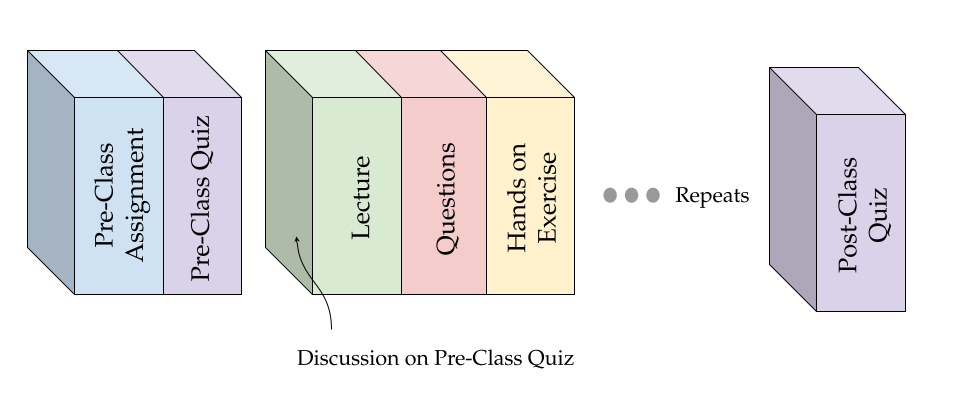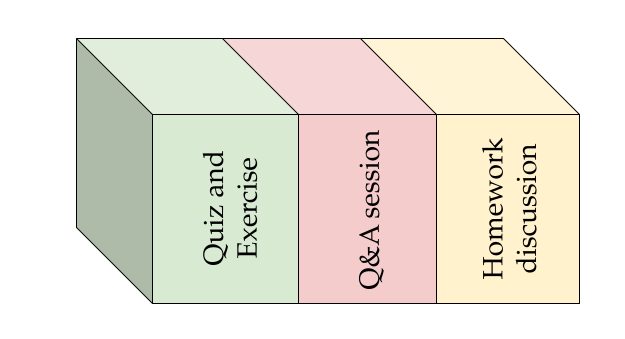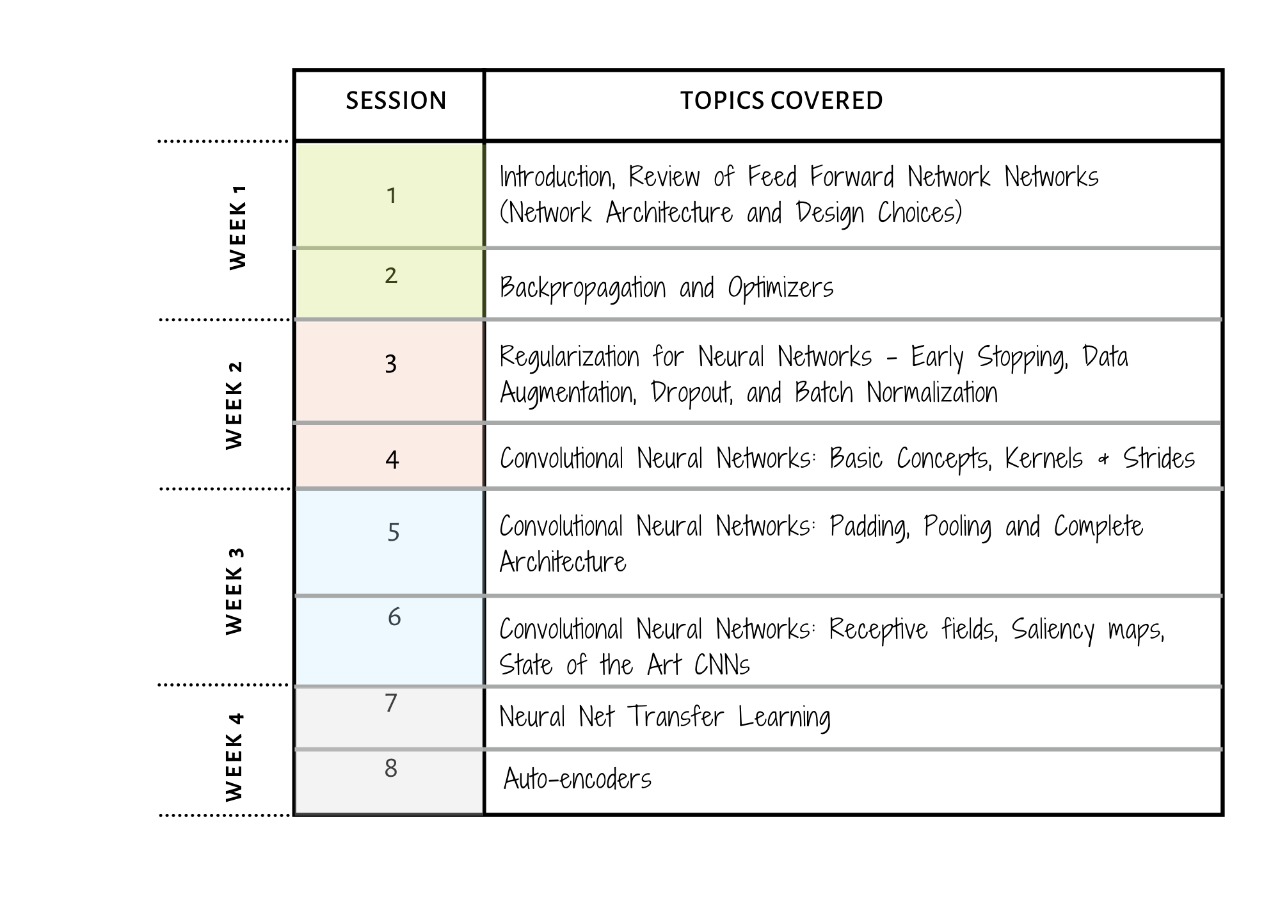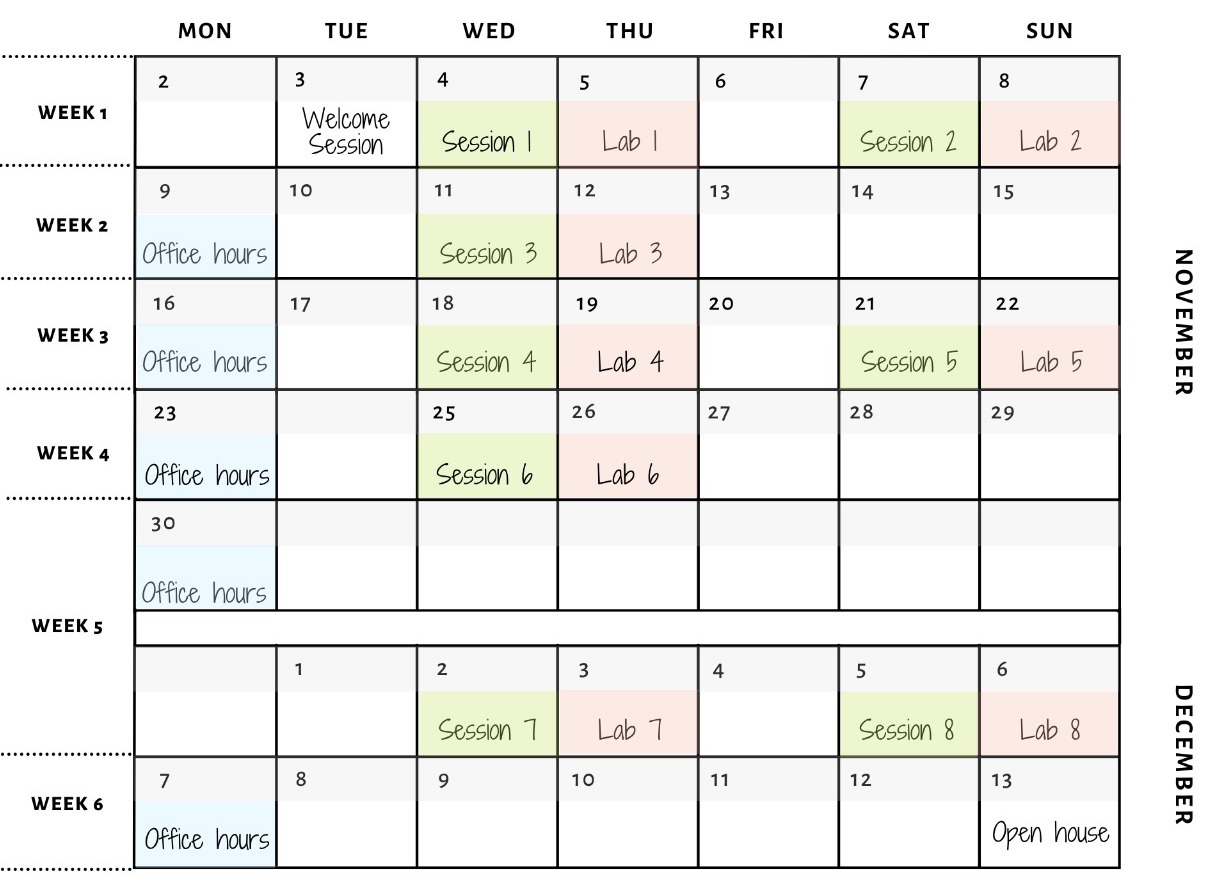Long ago in a distant land, I, Multi-Layer Perceptron, the shapeshifting master of darkness, unleashed an unspeakable evil. But, a foolish samurai warrior wielding a convolutional sword stepped forth to oppose me. Before the final blow was struck, I tore open a portal in time and flung him into the future where my evil is law. Now, the fool seeks to return to the past and undo the future that is MLP.
Welcome to the First Edition of AI2, a follow-up to our introductory course AI1.
In this course, you will continue your data science journey to learn more about convolutional neural networks and how they’re being used for machine learning. We’ll emphasize both the basic algorithms and the practical tricks needed to get them to work well.
The objective of this module is to provide you, the student, with a deeper intuition and understanding of neural networks including network architecture choices, activation functions, feed-forward, convolutional neural networks and auto-encoders.
At the end of this course, you will be able to run a variety of advanced machine learning models, and learn to apply them to practical image recognition problems. This page introduces you to the team, the basic instructions, the schedule and various elements of our class.
The Team
Dr. Pavlos Protopapas

- Scientific Director of the Institute for Applied Computational Science (IACS).
- Teaches Introduction to Data Science (CS109a), Advanced Topics in Data Science (CS109b) and Advanced Practical Data Science (AC215).
- He is a leader in astrostatistics and he is excited about the new telescopes coming online in the next few years.
You can read more about him here.
The teaching assistants for the duration of this course are:
Varshini Reddy

- Varshini is an Artificial Intelligence Researcher and Teaching Fellow at Univ.AI.
- Previously, she was a Research Associate at the Indian Institute of Science.
- She is passionate about working at the interface of AI and social impact.
Hargun Oberoi

- Hargun is an AI and ML Researcher and Teaching Fellow at Univ.AI
- He is a Masters graduate of Mathematics from BITS Pilani University.
- Previously, he has worked as a client project manager at Cisco Systems for three years.
Anusha Sheth

- Anusha is working as a research and teaching fellow with Univ.ai, she has previously worked with Robert Bosch as a software engineer in automotive domain.
- She is a big believer in sustainability and has been working on applications of AI in sustainable energy for the last 3 years.
Arya Mohan

- Arya is currently a data analyst at Schneider Electric and a Teaching Assistant at Univ.AI.
- She is passionate about image processing and is currently researching the application of computer vision in the detection of deep fake videos.
The Coursework
We have very carefully designed the coursework to give you, the student, a wholesome learning experience.
Each week shall include:
- 2 Sessions
- 2 Labs
- Office hours
Session - What to expect

Before the session begins, students are expected to complete a pre-class reading assignment and and attempt a quiz based on the same.
A session will have the following pedagogy layout which will be repeated three times:
- Approx. 15 minutes of live online instruction followed by approx 15 minutes of Q/A + Quiz + Exercises.
- Sessions will help students develop the intuition for the core concepts, provide the necessary mathematical background, and provide guidance on technical details.
- Sessions will be accompanied by relevant examples to clarify key concepts and techniques.
After the session, students are expected to complete a short post-class quiz based on the principal concepts covered in class.
Lab - What to expect

A lab is a TA driven one hour session that is divided into 3 major parts.
- Each lab begins by revisiting the Quizzes and Exercises done in the previous lecture session.
- After discussing exercises, we will have a semi-formal Q/A session. All doubts pertaining, but not limited, to the previous session, and homeworks are welcome.
- The last part of the labs deals predominantly with the upcoming homeworks. It is directed towards giving a brief overview of the homework problem. We will discuss some code to help you get started.
Course Content

The Class
Welcome Session - Preparing for this class
There will be a Welcome Session scheduled on 03 November 2020 at 7:00 PM IST for all registered students.
Please check your mail for more information.
High level course schedule

NOTE: Below timings are in IST
Lecture Sessions:
- Wednesday Series:
9:00 PM - 11:00 PM - Saturday Series:
7:30 PM - 9:30 PM
Lab Sessions:
- Thursday Series:
9:00 PM - 10:00 PM - Sunday Series:
7:30 PM - 8:30 PM
Office hours:
- Mondays:
9:00 PM - 10:00 PM
Course Pre-Requisites
You are expected to have programming experience at the level of Harvard’s CS50, statistics knowledge at the level of Harvard’s Stat 110 or above and basic machine learning concepts such as model fitting, test-validation, regularization, etc.
-
Programming Experience:
-
Experience with Python: functions, variable scope, classes, modules, NumPy, SciPy, Matplotlib
-
Basic data structures
-
File I/O
-
-
Statistics Experience:
-
Basics of probability, conditional probability, Bayes’ theorem
-
Univariate distributions, normal, binomial, Poisson distributions
-
Multivariate normal distribution
-
Central Limit Theorem
-
-
Machine Learning Experience:
-
Basic understanding of supervised and unsupervised learning
-
Regression and Classification
-
Loss functions
-
Overfitting and Regularization
-
Model Selection
-
Please find a more detailed summary of the pre-requisites for this program here.
Diversity & Inclusion
We actively seek and welcome people of diverse identities, from across the spectrum of disciplines and methods since Artificial Intelligence (AI) increasingly mediates our social, cultural, economic, and political interactions [1].
We believe in creating and maintaining an inclusive learning environment where all members feel safe, respected, and capable of producing their best work.
We commit to an experience for all participants that is free from – Harassment, bullying, and discrimination which includes but is not limited to:
- Offensive comments related to age, race, religion, creed, color, gender (including transgender/gender identity/gender expression), sexual orientation, medical condition, physical or intellectual disability, pregnancy, or medical conditions, national origin or ancestry.
- Intimidation, personal attacks, harassment, unnecessary disruption of talks during any of the learning activities.
Reference:
[1] K. Stathoulopoulos and J. C. Mateos-Garcia, “Gender Diversity in AI Research,” SSRN Electronic Journal, 2019 [Online]. Available: http://dx.doi.org/10.2139/ssrn.3428240.
Logistics - What you need to begin?
We assume you have a Univ.AI account, created when you signed up at courses.univ.ai. If not, email programs@univ.ai.
Education software we use
- Our lectures and labs are carried out via Zoom (install instructions).
- Quizzes & exercises will be conducted on the digital learning platform Ed.
- Ocassionally, we may conduct in-class contests on kaggle. Please register on kaggle and familarize yourself with it, if you haven’t already done so. This is a short video that will help you learn how to use kaggle.
All exercises and homeworks in this course will be done in jupyter notebooks. This link will help you setup jupyter lab and get you acquianted with jupyter notebooks.
Our module policies around collaboration and grading are listed here. Our expectations of you are also laid out in that document.
Parting note
As you will learn in this course, data science is not just about writing efficient algorithms.
It requires proficiency in critical thinking, ideation & presentation, along with strong foundations in statistics, computer science & mathematics.
Keeping that in mind, you are adviced to give your full active attention to every session, homework & exercise.
We wish you best of luck for your data science journey.
